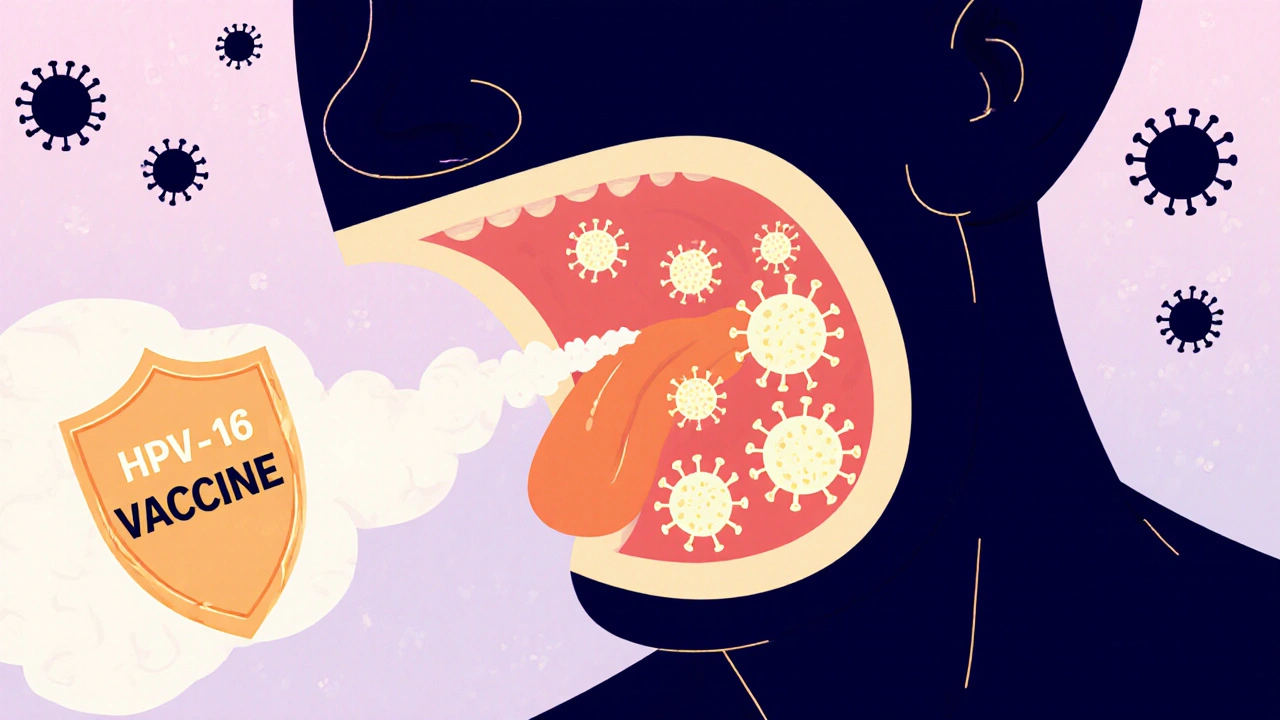When we talk about throat cancer HPV, a type of cancer caused by the human papillomavirus infecting the throat and tonsils. Also known as oropharyngeal cancer, it’s no longer rare—it’s one of the fastest-growing types of head and neck cancer in the U.S. and Europe, especially among men under 50. Unlike smoking-related throat cancer, this version often shows up in people who never smoked or drank heavily. It’s not the virus itself that kills, but the way certain strains—especially HPV-16—rewire cells to grow out of control.
This isn’t just about sexual behavior. HPV spreads through skin-to-skin contact, including oral sex, and most people clear it without ever knowing they had it. But for some, the infection sticks around for years, silently changing cells until cancer forms. The good news? We now know exactly which strains cause this, and we have a vaccine that prevents them. The HPV vaccination, a series of shots that protect against cancer-causing strains of human papillomavirus works best when given before exposure, ideally in early teens. But even adults up to age 45 can benefit if they haven’t been exposed to all covered strains.
Doctors now test for HPV in throat tumors because it changes everything. People with HPV-related cancer, a subtype of throat cancer driven by the human papillomavirus tend to respond better to radiation and chemotherapy than those with cancer from smoking. Their survival rates are higher, and they often need less aggressive treatment. That’s why identifying the cause matters—it directly shapes your treatment plan.
What you won’t find in most headlines is how often this cancer is missed. Symptoms like a persistent sore throat, trouble swallowing, or a lump in the neck get blamed on allergies or stress. By the time it’s diagnosed, it’s often advanced. That’s why knowing your risk—especially if you’re over 30, male, or have had multiple oral partners—is critical. Regular checkups with an ENT can catch early signs before it spreads.
There’s no magic pill to reverse HPV, but your immune system can often handle it if you’re healthy. Avoiding tobacco, limiting alcohol, eating well, and staying active gives your body the best shot at fighting off the virus. And if you’ve been diagnosed, you’re not alone. More people are surviving HPV-driven throat cancer now than ever before—thanks to better detection, smarter treatments, and vaccines that stop it before it starts.
Below, you’ll find real-world guides on how this cancer is treated, what medications help manage side effects, how to stay on track with therapy, and why some people respond better than others. These aren’t theory pieces—they’re practical resources from people who’ve been there, written for those who need clear answers now.
Posted by
Jenny Garner
13 Comments

HPV causes throat, anal, and other cancers - but they’re preventable. Learn how the HPV vaccine works, who needs it, and why screening still matters for women. Most cases are avoidable with simple steps.
read more